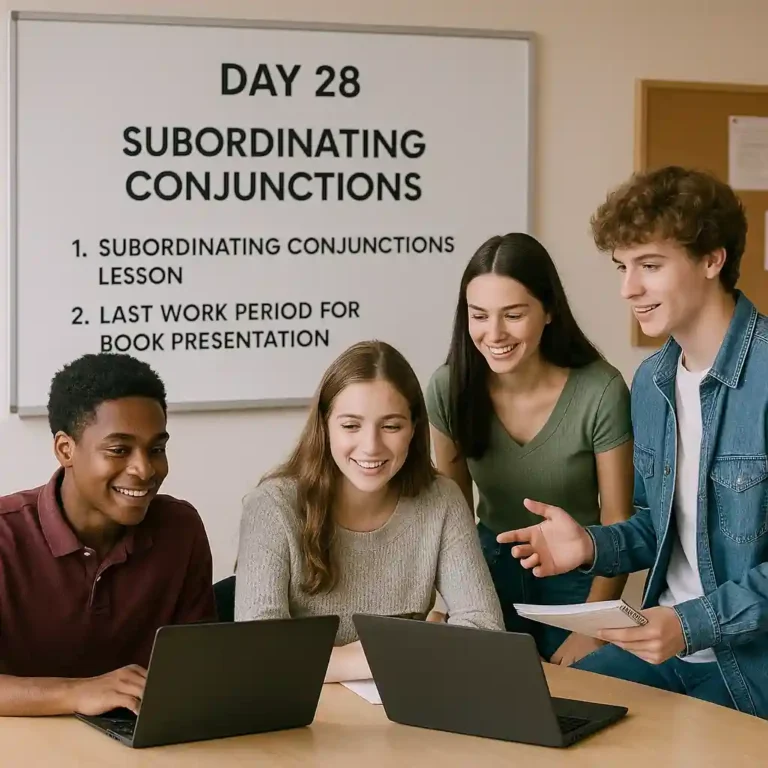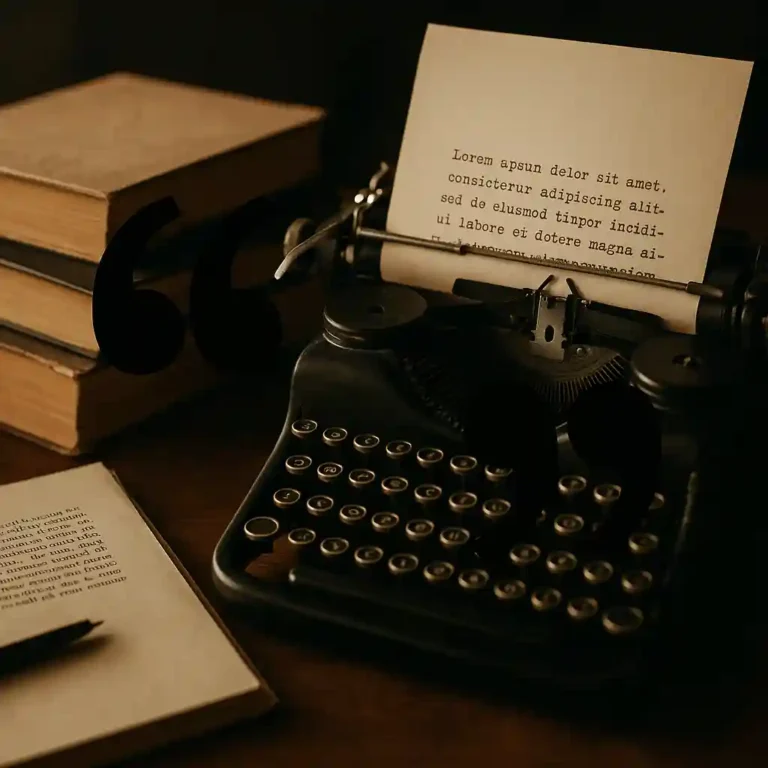Day 24: Literary Device Review With a Taskmaster-Style Classroom Challenge
Students will review 15 key literary devices in a creative, high-energy classroom competition modeled after Taskmaster.
Materials Needed:
Whiteboard and markers
Envelopes or cards with each literary device written inside
Props (simple classroom objects like paper, markers, random items for creative tasks)
Scoring sheet
Optional: silly hat, wig, or crown for the “Taskmaster”
Lesson Flow
1. Silent Reading – 15 minutes
Calm before the storm. Give students 15 minutes to read silently. Afterward, let them know they’re entering the “Literary Device Arena.”
2. Introduce the Taskmaster Game (5 minutes)
Explain that today’s class is a Taskmaster Literary Device Review. Students will be placed into groups of about five. Each group will compete in quick, creative, and hilarious challenges tied to specific literary devices. Points will be awarded for creativity, accuracy, and effort. The group with the most points wins “The Golden Grammar Trophy” (or whatever you choose to call it — bonus points if it’s ridiculous).
3. The Literary Device Challenges (45 minutes)
Each round focuses on one device. You read the literary device and give the challenge. Allow 2–4 minutes per task, then award points.
Round 1: Simile
Task: Create the funniest simile comparing your teacher to an inanimate object.
Example: “Mr. Callens is like a broken pencil—pointless before his morning coffee.”
Round 2: Hyperbole
Task: Write one wildly exaggerated excuse for not doing your homework. Perform it dramatically.
Round 3: Alliteration
Task: Write a tongue-twister about your group’s favorite food using alliteration. Perform it three times fast!
Round 4: Metaphor
Task: Write a metaphor describing your group’s mood right now. Bonus points if it’s surprisingly poetic.
Round 5: Personification
Task: Pick an object in the room and act out how it would behave if it came to life for one minute.
Round 6: Oxymoron
Task: Create a two-line poem that includes an oxymoron.
Example: “Alone together, we whispered in silence.”
Round 7: Onomatopoeia
Task: Perform a mini-skit of a superhero battle using at least five sound words. (“Bam!” “Crash!” “Whoosh!”)
Round 8: Allusion
Task: Write a sentence that cleverly references a myth, movie, or book character.
Example: “He strutted into class like he’d just snapped half the homework away—Thanos-style.”
Round 9: Anaphora
Task: Deliver a short (20-second) “speech” that repeats one phrase at the beginning of each line.
Example: “We will win this game. We will not give up. We will remember our commas.”
Round 10: Cacophony
Task: Write and perform the ugliest-sounding sentence possible.
Example: “Crackling croaks clattered through the cluttered classroom.”
Round 11: Cliché
Task: Write the cheesiest love line ever, using at least one cliché. Perform it as a soap opera scene.
Round 12: Imagery
Task: Describe a pizza so vividly that everyone in the room becomes instantly hungry.
Round 13: Paradox
Task: Create a short statement that seems impossible but somehow makes sense.
Example: “The faster we go, the more behind we become.”
Round 14: Pun
Task: Create a short, original pun about English class. Bonus points if it’s groan-worthy.
Example: “We’re just past our prime—our prime meridian of grammar.”
Round 15: Symbolism
Task: Choose an object from the classroom and explain what it symbolizes in your group’s “journey.”
Example: “This whiteboard marker symbolizes our fleeting hope—it starts strong, then fades quickly.”
4. Scoring (5 minutes)
Award points after each round (1–5). For added drama, use a whiteboard scoreboard and exaggerated announcer voice.
At the end, declare the winning team, play celebratory music, and hand out a symbolic trophy—or perhaps a golden stapler.
5. Closure (5 minutes)
Wrap up with a quick class reflection:
Which literary device was hardest to remember?
Which was easiest to spot in stories we’ve read?
How can we use these devices to make our writing stronger?
6. Teacher Note:
Remind students that the short story unit test will take place on Day 25, so reviewing these devices will help them identify and analyze them in any story.





